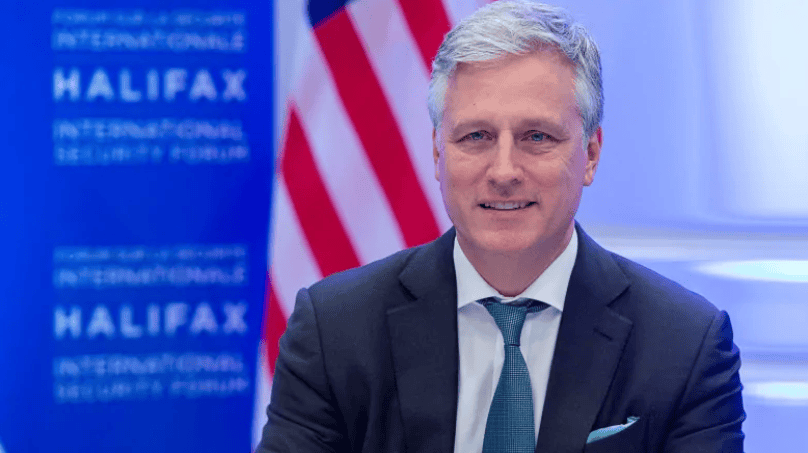
‘Canada has got a lot of real estate to defend,’ new U.S. national security adviser says
The Liberal government is facing renewed political pressure from the administration of U.S. President Donald Trump to increase defence spending to meet the benchmark established by NATO.
Robert O’Brien, the new U.S. national security adviser, said it is an “urgent priority” to get allies across the board to set aside military budgets that are equal to two per cent of the individual country’s gross domestic product.
Speaking with journalists at the Halifax International Security Forum on Saturday, O’Brien rattled off a list of the world’s flashpoints, including Iran and Venezuela, as well as traditional adversaries such as Russia and China.
“There are very serious threats to our freedom and our security,” he said. “Canada made a pledge at [the 2014 NATO Summit in] Wales to spend two per cent. We expect our friends and our colleagues to live up to their commitments, and Canada is an honourable country; it’s a great country.”
O’Brien was a lawyer and former U.S. State Department hostage negotiator before being appointed this summer to the top security job. He noted the construction of the Canadian navy’s new Arctic Offshore Patrol Ships, the first of which was on sea trials during the security forum, but said it could use some heavier armament given the potential warships and submarines it could face in the North.
“Canada has got a lot of real estate to defend,” he said, noting that the Arctic is an area of interest for not only Russia, but China.
“As nice as it is to say we don’t want to militarize the Arctic, other people are going to make that decision for Canada. And Canada needs to be in a position to defend itself, defend its values.”
‘You can’t just do this overnight,’ Sajjan says
Every time Trump has complained allies are not paying their fair share of the security of the West, Prime Minister Justin Trudeau’s government has countered with its defence policy, which committed to a 73 per cent budget increase by 2026-27.
That would bring Canada’s defence spending to 1.4 per cent of GDP. It currently sits around 1.27 per cent, according to NATO figures released last June.
Responding to O’Brien on Saturday, Defence Minister Harjit Sajjan insisted the Liberal government is working towards what was promised in Wales.
“You can’t just do this overnight,” he said. “It’s a buildup. And the decisions we’ve made as a government are building towards that.”

Sajjan also noted that Canada delivers high quality troops and equipment whenever NATO asks, including taking up two leaderships roles under the alliance banner in Latvia and Iraq.
However, an internal defence department slide deck briefing obtained by CBC News and dated from February 2019 shows how defence spending will rise until 2026-27, but then begin to fall again once several major capital purchases are underway and booked.
In addition to NATO, the Trump administration has been leaning on allies in the Far East to shoulder more of the collective defence costs.
The U.S. president has asked Tokyo to quadruple payments for U.S. troops in Japan and is currently negotiating a new deal with South Korea. O’Brien said rich countries with healthy economies should be paying more to defend themselves.


